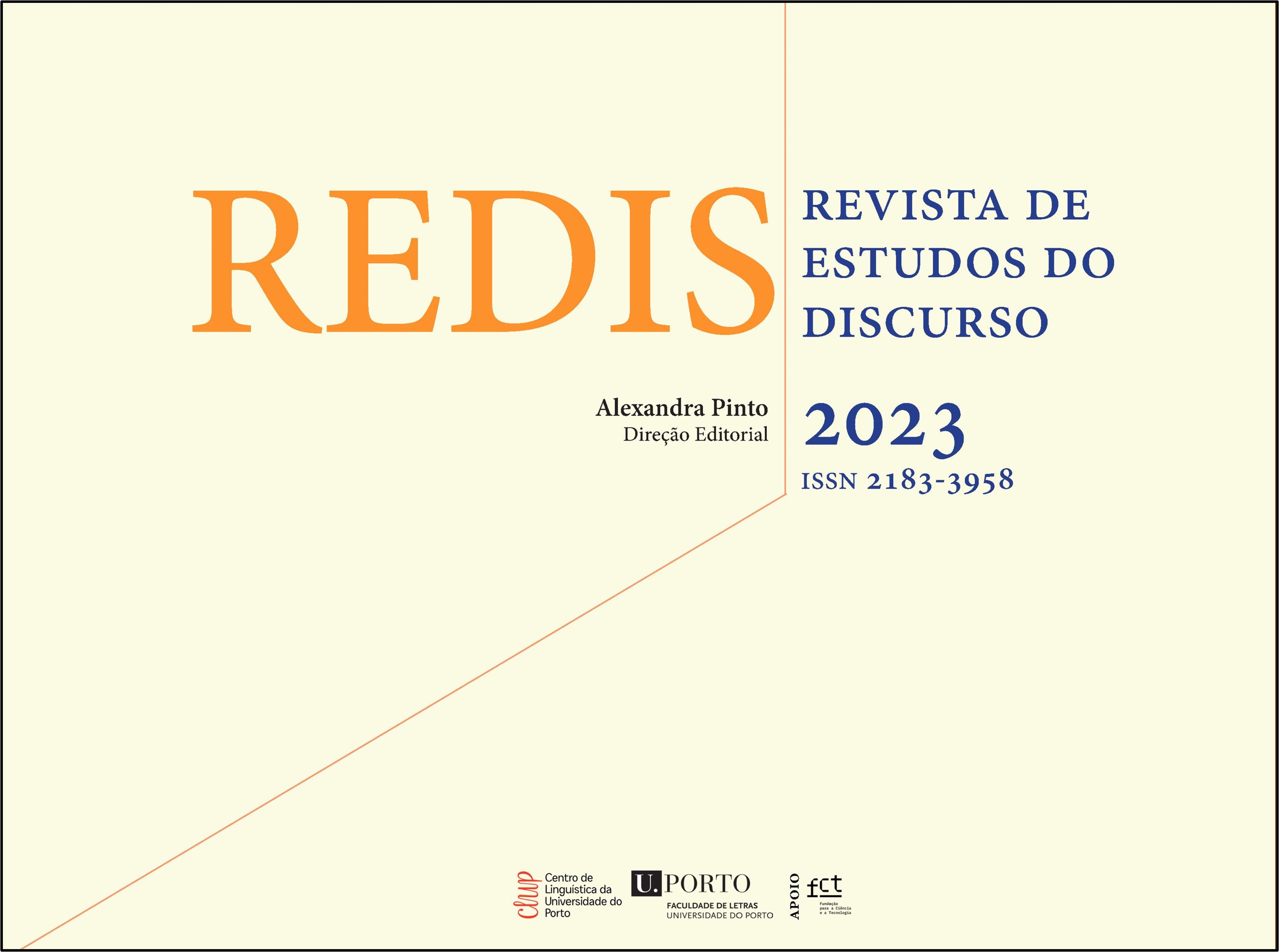Disinformative Remixing in Internet Memes
DOI:
https://doi.org/10.21747/21833958/red13a5Keywords:
Disinformation, Internet Memes, Remix, Disinformative RemixingAbstract
The present study aims to analyze remixing strategies in internet memes serving disinformation, which we term disinformative remixing. In the contemporary digital landscape, where remix has become the driving force behind sociocultural processes (Lemos, 2006), we assume that understanding remixing strategies (Navas, 2019) in memes becomes a crucial tool in combating disinformation, considering that informational disorder flows (Wardle, 2017, 2020) largely traverse these techno-digital artifacts. In addition to the theoretical reflection guiding this work, for illustrative purposes, we propose the analysis of an internet meme in light of some analytical steps of Critical Discourse Analysis (CDA), following Fairclough (2001, 2003) and Chouliaraki and Fairclough (1999), along with the methodological procedures described by Navas (2019). Ultimately, we infer that analyzing the processes and effects caused by the influence of internet memes and understanding their 'memetic engineering' can become a crucial component in revising practices to combat disinformation in the contemporary digital landscape.
References
Blackmore, S. (1999). The Meme Machine. Oxford: Oxford University Press.
Cadernos De Linguística (2020), 1(4). Acedido em novembro 02, 2023 em. https://cadernos.abralin.org/index.php/cadernos/issue/view/7.
Chagas, V., Freire, F., Rios, D. & Magalhães, D. (2017). A política dos memes e os memes da política: proposta metodológica de análise de conteúdo de memes dos debates eleitorais de 2014. Intexto 38(1), pp. 173-196. DOI: https://doi.org/10.19132/1807-8583201738.173-196.
Chagas, V. (2018). A febre dos memes de política. Revista FAMECOS. 25(1), pp. 1-26. DOI: https://doi.org/10.15448/1980-3729.2018.1.27025.
Chouliaraki, L. & Fairclough, N. (1999). Discourse in late modernity: rethinking Critical Discourse Analysis. Edinburgh: Edinburgh University.
D’Ancona, M (2018). Pós-Verdade: A nova guerra contra os fatos em tempos de Fake News. Faro Editorial: São Paulo.
Dawkins, R. (1979). O Gene Egoísta. Belo Horizonte: Itatiaia.
English Oxford Living Dictionaries (2016). Word of the Year 2016 is... Acedido em julho 07, 2023 em https://languages.oup.com/.
Fairclough, N. (2001). Discurso e mudança social. Brasília: UnB.
Fairclough, N. (2003). Analysing discourse: textual analysis for social research. London: Routledge.
Knobel, M. & Lankshear, C. (2006). A new literacies sampler. London: Routledge.
Lemos, A. (2006). Ciber-cultura-remix. Araújo, D. (Org.). Imagem (Ir) realidade. Comunicação e cibermídia. Porto Alegre: Sulinas, pp. 53-65.
Martino, L. (2014). Teoria das Mídias Digitais: linguagens, ambientes, redes. Petrópolis: Vozes.
Museu de Memes. O que são memes. Acedido em julho 07, 2023 em https://museudememes.com.br/o-que-sao-memes.
Navas, E (2019). Re-versioning The Elements of Selectivity: Transformation and Originality after Remix. In: Feireiss, L (Org.). Radical Cut-Up – Nothing is Original. Amsterdã: Sternberg Press, pp. 227-244.
Pariser, E. (2012). O filtro invisível: O que a internet está escondendo de você. Rio de Janeiro: Zahar.
Recuero, R (2009). Redes sociais na internet. Porto Alegre: Sulina.
Resende, V. & Ramalho, V. (2011). Análise de discurso (para a) crítica: o texto como material de pesquisa. São Paulo: Pontes.
Shifman, L. (2014). Memes in digital culture. Cambridge: MIT Press.
Wardle, C. (2017). Information Disorder. Toward an interdisciplinary framework for research and policymaking. Europe: Council of Europe.
Wardle, C. (2020). Entender a desordem informacional. First Draft.
Downloads
Published
How to Cite
Issue
Section
License
Copyright (c) 2023 Thiago Ramos de Melo, José Ribamar Lopes Batista Júnior

This work is licensed under a Creative Commons Attribution 4.0 International License.
The authors give to REDIS. Revista de Estudos do Discurso the exclusive right to publish its texts, in any medium, including their reproduction and sale in paper or digital format, as well as their availability in a free access regime in databases.
















